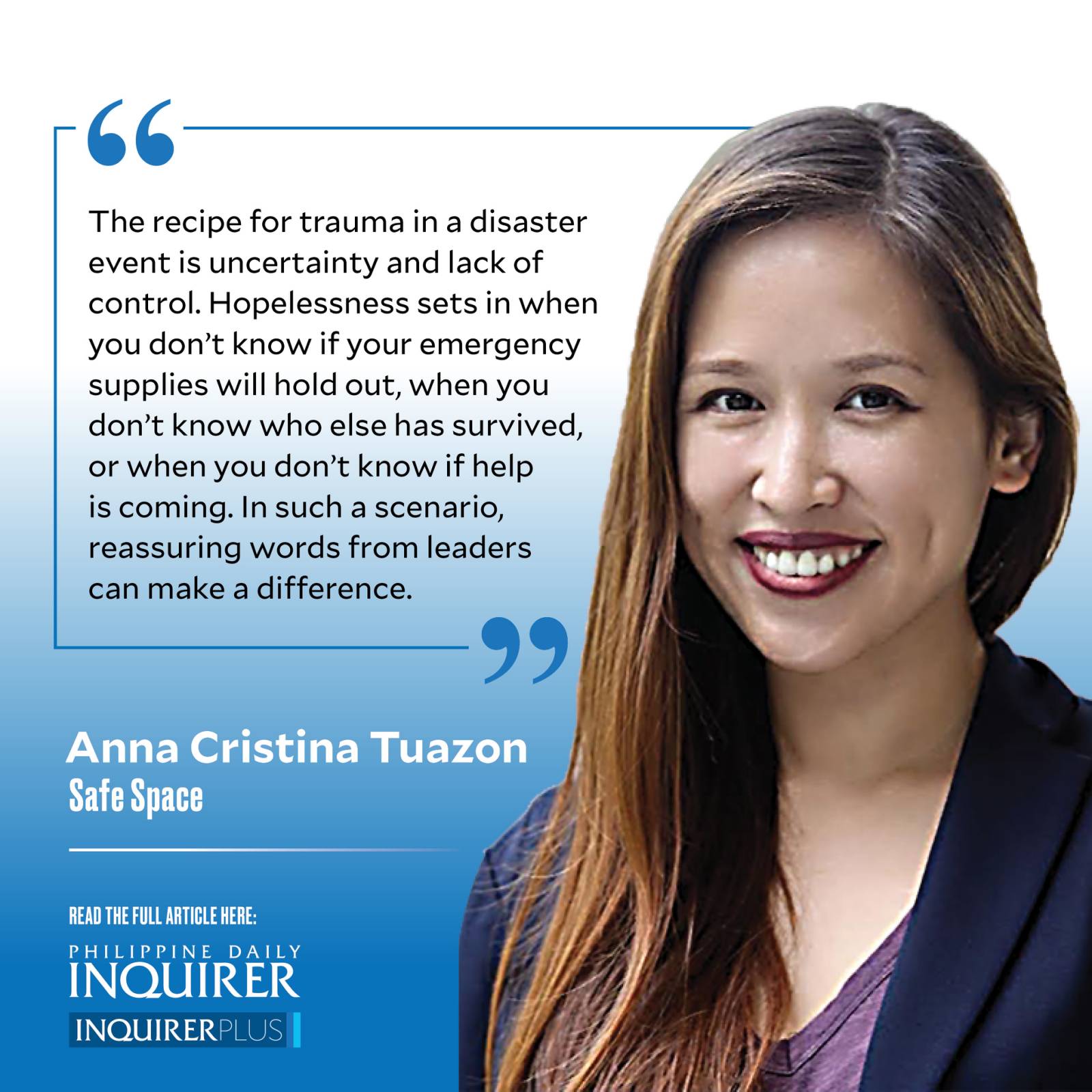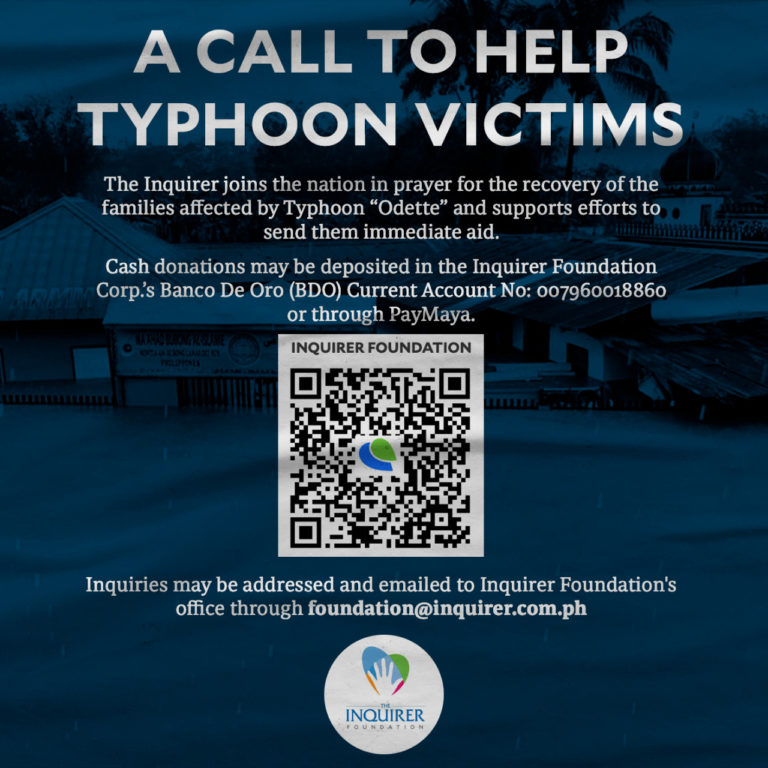Help is coming

People didn’t know if their loved ones were safe. What made the havoc wrought by Supertyphoon “Odette” even more insidious than others was that, with so many regions affected, the communication and power lines went down which resulted in a terrifying silence. The throng of people asking for confirmation of their loved ones’ safety were left unanswered for the first few days.
The recipe for trauma in a disaster event is uncertainty and lack of control. Hopelessness sets in when you don’t know if your emergency supplies will hold out, when you don’t know who else has survived, or when you don’t know if help is coming. In such a scenario, reassuring words from leaders can make a difference between someone gathering the strength to survive and someone losing hope. We need to know that someone has things under control. We need to know that someone is on their way.
Visibility of our leaders matters. This happening during election season is both a blessing and a curse. Most, if not all, candidates will feel the pressure to step up and ensure that they are the most visible in the relief efforts. The election season has made sure that no one can afford to not care. I genuinely don’t mind the photo-ops as long as people are being rescued and helped. The visibility they drum up might even give their affected supporters some much-needed hope. The downside is when public officials, candidates, and their supporters use their visibility to disparage their rivals at the expense of feeding into people’s hopelessness. Hope becomes the collateral damage to the election drama.
The last thing we should do in the emergency phase of a disaster is to focus on blame. I promise, there is time for that later on. There is, however, room and a valid urgency for holding people accountable in so much as to ensure that they are not getting in the way of relief efforts—calling them out when they withhold funds, ensuring that all resources are being routed appropriately, and exposing corruptions and abuses that take away from the relief efforts.
Blame, however, for the pure sake of a negative campaign against your competitors is something that not only distracts from disaster operations but causes survivors to lose hope. We must make sure that we never inadvertently send the message that no help is coming. If resources truly are scarce and depleted, we must enforce the message that we will find a way no matter what. If responders are fatigued and overwhelmed, we must communicate that we will provide support however we can. If funding and resources are being withheld, we must assure them that we will fight to make sure that funds will be released as soon as possible.
Everyone has a role to play in post-disaster efforts. In my life as a researcher, I have encountered disaster responders on the ground: search and rescue teams, emergency medical services, firefighters, engineers, and social workers. These are the true heroes that work tirelessly regardless of which administration it is. They are not political appointees; they are civil servants who’ve made it their professional life’s goal to rescue and protect others. Most of them are not even regularized or have adequate salaries given the dangerousness of their jobs. Yet they don’t neglect their duty. Researchers and academics, in turn, do our part in advocating for policies that will (hopefully) give them adequate support and care.
Civic groups and civilian efforts in the Philippines are one of the most impressive in the world (due in part to the historical difficulty in relying solely on government). Grassroots efforts spring up spontaneously the moment there is a call for help. Western-style disaster response generally promotes a top-down organization to optimize efficiency; our own indigenous disaster response, however, has shown that community-driven effort is best in a nation made up of thousands of islands.
Just because civic efforts are strong doesn’t mean that we can let government shirk their responsibility. Whether we like it or not, government has a pivotal resource that no one else has: the mechanism to coordinate the flow of resources and manpower. They have resources to clear the roads, ports, and airports and to restore power and communication lines. Military engineers and medics can quickly set up evacuation sites and field hospitals. Military planes and ships can transport goods and rescue survivors in places that civilians cannot easily access.
We must not get distracted by politics; we all need to do our part and work together so that we can genuinely say, “Help is coming.”
——————
aatuazon@up.edu.ph





















